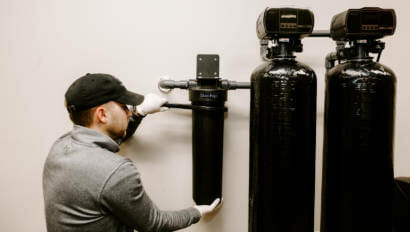Despite being one of the most commonly used treatment options for homeowners, water softeners are sometimes met with misinformation, misinterpretations, and lies. We would like to debunk some of the common ones!
Water Softeners Remove Essential Minerals
Magnesium and calcium are in fact two crucial minerals for a healthy body. These are the two culprits of hard water and are the targets of water softening systems. When found in water and soil however, these minerals are inorganic compounds.
I am going to take you back to high school science for just one moment (no homework I promise!). When presented in their inorganic state, these minerals are not absorbed completely by the body, and do not have the same beneficial effects. To get the full benefits of these minerals, you must eat them in their organic state as found in veggies and meats. Eat your veggies!
The cost of the machines outweighs the benefits
Water softeners pay for themselves in a short time, through preventive measures. By protecting your homes appliances and pipes, you are saving yourself from future expenditures and headaches. If you would like to see a list of more ways water softeners can save you money, we have written “THIS” article explaining more.
Water Softeners Add Too Much Salt
This is a very common misinterpretation of the water softening process. Hard water is alleviated through an ion exchange. This process replaces the magnesium and calcium ions with sodium. While this may seem like a net negative, the sodium that finds its way into your water is not nearly enough to notice. It is also safe for those on a low sodium diet or sodium restriction.
Additionally, water softeners are often times paired with filtration systems such as carbon filters or reverse osmosis systems. These can be used to mitigate any lingering concerns you may have about the sodium.
City Water Doesn’t Require Softening
This is not true at all! While many cities do a fine job at keeping water quality at “acceptable” levels, these levels are often outdated and still pose a risk to your household. If you would like to see just how good your city water is, please click HERE for a water sample test kit.
Water Softening is Filtration
While water softeners do a great job of removing magnesium and calcium from your water, they do not purify it. They are designed to reduce the hardness, not purify. Water Softeners are most often paired with filtration systems, such as reverse osmosis or whole home carbon filters. These systems are designed specifically to filter out containments and give you safe drinking water. If you would like to learn more about other water treatment and filtration options, please click HERE.
Conclusion:
If you have heard any of these myths or have any other questions regarding water softening or filtration, we would be more than happy to help.
Contact us today to schedule a water test and see if a water softener is right for your home



